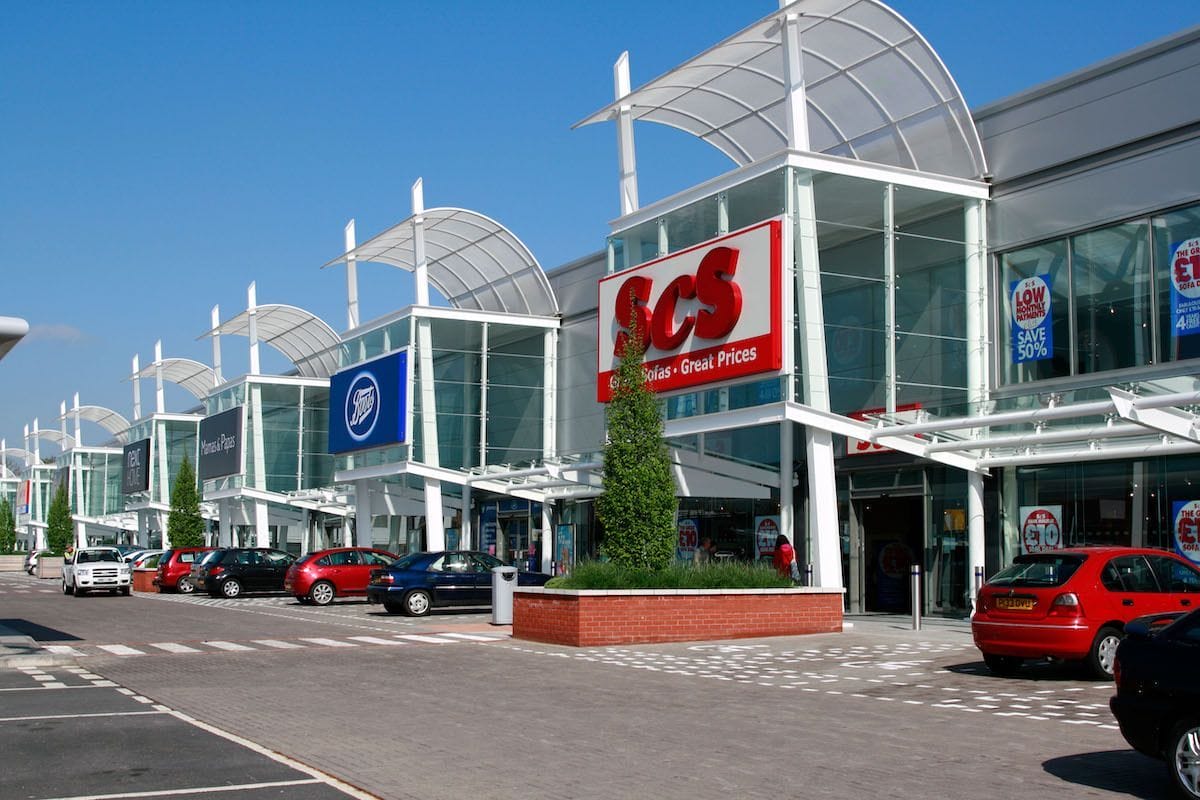Retailers find great appeal in retail parks.

High streets in the UK continue to suffer from growing numbers of vacant units from retail closures but it is not all doom and gloom for physical stores because out of town retail parks are enjoying something of a boom-time as they attract growing numbers of new retail tenants.
Out of town parks are the only type of retail location to record more openings than closures across the first half of the year, according to data from the Local Data Company, which found a net increase of 0.6% units in use. This puts retail park vacancies at 8.1%, which is the lowest point they have been since the first half of 2019, and compares favourably with the high street where there has been a 0.7% net decline in units with tenants.
Such is the buoyancy in this part of the market that the largest owner of retail parks, British Land, has upgraded the estimated value of its portfolio of 40 such properties by a third – to between three and five per cent – on the back of growing demand for space by retailers. In the five months to end-August the company leased over half a million sq ft of space across its batch of parks.
In the past year it has signed a number of significant deals including five with Fraser’s Group and others with Primark and B&M. Indicative of the activity in its retail parks is its Orpington site where British Land recently took City analysts on a visit. Boots has opened a unit, Marks & Spencer has upsized to larger premises, and Hotel Chocolat is about to open a new store.
Such is the demand for sites on retail parks that real estate agent CBRE predicts vacancy rates could fall to 3-4% before the end of the year. The company suggested the appeal of such units was a result of their focus on essential categories such as clothing and groceries in comparison to high streets where the broader array of stores means there are far too many temptations to shoppers attempting to stick to budgets.
“We believe value retailers and grocery retailers will be the key drivers of demand for retail parks as consumer spend is weighted towards essential items; Aldi, B&M, Home Bargains, The Range, and Poundland are continuing with ambitious nationwide store expansion targets,” CBRE explained.
One major appeal of retail parks to retailers is that they are able to accommodate more space for e-commerce warehousing. This enables them to deliver a multi-channel proposition from the unit involving online sales, click & collect, and the processing of goods returned into the stores.
